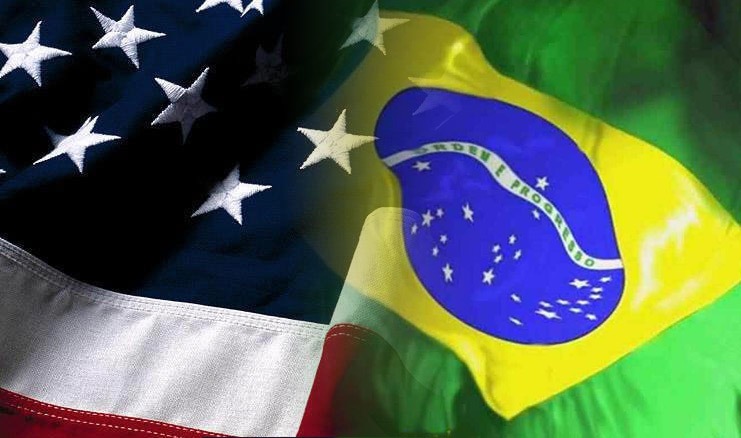RIO DE JANEIRO, BRAZIL – Concerned with the impact that Donald Trump’s potential defeat could have on Brazil-US relations, members of Brazil’s private sector want the first stage of a trade agreement between the two countries to be completed before the US November elections.
The period is considered an urgent window for a return to pledges that have progressed little since President Jair Bolsonaro’s visit to Washington in March last year, such as the trade agreement and Brazil’s accession to the OECD (Organization for Economic Cooperation and Development).

A document organized by Amcham Brasil (American Chamber of Commerce), a body that includes some 5,000 Brazilian and American companies, lists ten measures considered a priority for this year, despite the difficulties imposed by the economic and public health crisis caused by the pandemic.
Folha de S.Paulo had access to the text that will be forwarded to bilateral relations officials from both countries, such as ambassadors, ministers, secretaries and legislators.
The goal is to have greater results in the short term.
Business owners recognize that a free trade agreement, which considers tariffs, is far from being achieved, but demand actions such as trade facilitation, good regulatory practices, e-commerce, and fighting corruption, as part of what they call the first stage of the deal.
“The initiative is expected to be completed before the US presidential elections, which would represent a major step toward a future more comprehensive trade agreement,” says the Amcham paper.
The text also stresses the need to implement two measures that were considered the great assets of Brazilian diplomacy in Bolsonaro’s visit to the White House: the designation of Brazil as a principal extra-NATO ally, and American support for the country’s eventual membership in the OECD. “In spite of the welcome support expressed by the US for Brazil’s priority accession to the OECD, the start of the accession process still needs to be approved by all its members.”
The main concern of Brazilian and American entrepreneurs with interest in Brazil is that, should Trump be defeated by the Democrat candidate Joe Biden – who leads in both national and key states polls – Brazil will lose access to the goodwill that exists today in the White House in relation to Bolsonaro.
Although Trump tends to bypass any ally when his interests are at stake, he often says he sees the Brazilian president as a friend, while Democrats put pressure on the US not to expand trade relations with a government that allegedly attacks important pillars of democracy.
Last month, Robert Lighthizer, the US trade representative, said the US government has no plans to close a free trade agreement with Brazil at this time. Representatives of Trump’s congressional opposition had sent a letter to Lighthizer saying they were opposed to a trade agreement between Brazil and the United States.
Since March, when Bolsonaro met with Trump, the efforts of both countries’ officials have been to create business facilitation as a first step towards a broader agreement. Some members of the government, and Bolsonaro himself, however, continued to talk about free trade.
According to the Amcham document, by not involving tariffs, negotiations can be conducted at the bilateral level, without the need for Mercosur involvement or a change in its rules, “as well as dispensing with US Congress approval”.
Only after the completion of this first step, as the text states, would the countries conduct the necessary talks to “prepare the ground for the formal start of negotiations on a comprehensive trade agreement, which would include tariffs and issues that were not covered in the initial package.”
However, there is not much inclination in the US government to relax tariffs on Brazilian products.
The document acknowledges that, with the economic crisis caused by the pandemic, investments have plummeted and cooperation between the two countries is needed to resume activities.
The list also includes as priorities: the restoration of the flow of travelers between Brazil and the US -the borders are closed due to the pandemic; the beginning of negotiations for an agreement to prevent double taxation -an old demand in the sector; and the full participation of Brazilian executives in the US Global Entry visa program; and the strengthening of bilateral legislative diplomacy.

